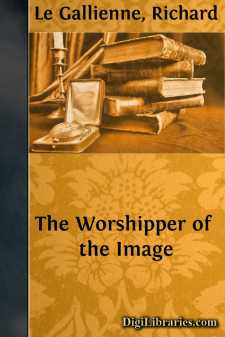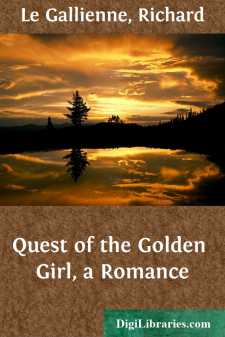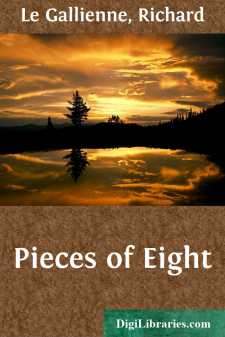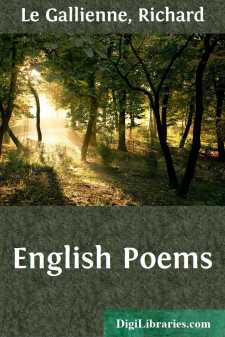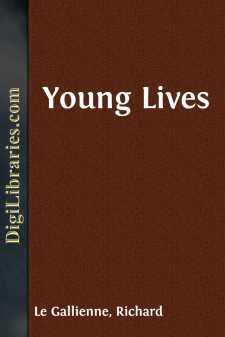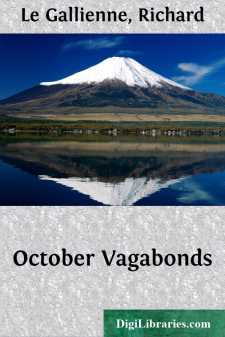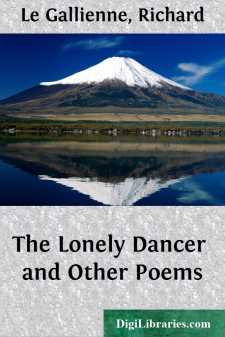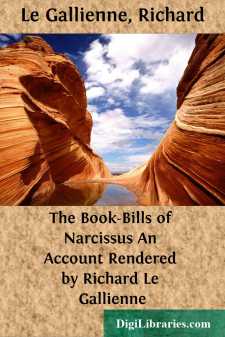Categories
- Antiques & Collectibles 13
- Architecture 36
- Art 48
- Bibles 22
- Biography & Autobiography 816
- Body, Mind & Spirit 145
- Business & Economics 28
- Children's Books 17
- Children's Fiction 14
- Computers 4
- Cooking 94
- Crafts & Hobbies 4
- Drama 346
- Education 58
- Family & Relationships 59
- Fiction 11834
- Foreign Language Study 3
- Games 19
- Gardening 17
- Health & Fitness 34
- History 1378
- House & Home 1
- Humor 147
- Juvenile Fiction 1873
- Juvenile Nonfiction 202
- Language Arts & Disciplines 89
- Law 16
- Literary Collections 686
- Literary Criticism 179
- Mathematics 13
- Medical 41
- Music 40
- Nature 179
- Non-Classifiable 1768
- Performing Arts 7
- Periodicals 1453
- Philosophy 66
- Photography 2
- Poetry 897
- Political Science 203
- Psychology 45
- Reference 154
- Religion 516
- Science 126
- Self-Help 85
- Social Science 82
- Sports & Recreation 34
- Study Aids 3
- Technology & Engineering 59
- Transportation 23
- Travel 463
- True Crime 29
Our website is made possible by displaying online advertisements to our visitors.
Please consider supporting us by disabling your ad blocker.
Vanishing Roads and Other Essays
Description:
Excerpt
I
VANISHING ROADS
Though actually the work of man's hands—or, more properly speaking, the work of his travelling feet,—roads have long since come to seem so much a part of Nature that we have grown to think of them as a feature of the landscape no less natural than rocks and trees. Nature has adopted them among her own works, and the road that mounts the hill to meet the sky-line, or winds away into mystery through the woodland, seems to be veritably her own highway leading us to the stars, luring us to her secret places. And just as her rocks and trees, we know not how or why, have come to have for us a strange spiritual suggestiveness, so the vanishing road has gained a meaning for us beyond its use as the avenue of mortal wayfaring, the link of communication between village and village and city and city; and some roads indeed seem so lonely, and so beautiful in their loneliness, that one feels they were meant to be travelled only by the soul. All roads indeed lead to Rome, but theirs also is a more mystical destination, some bourne of which no traveller knows the name, some city, they all seem to hint, even more eternal.
Never more than when we tread some far-spreading solitude and mark the road stretching on and on into infinite space, or the eye loses it in some wistful curve behind the fateful foliage of lofty storm-stirred trees, or as it merely loiters in sunny indolence through leafy copses and ferny hollows, whatever its mood or its whim, by moonlight or at morning; never more than thus, eagerly afoot or idly contemplative, are we impressed by that something that Nature seems to have to tell us, that something of solemn, lovely import behind her visible face. If we could follow that vanishing road to its far mysterious end! Should we find that meaning there? Should we know why it stops at no mere market-town, nor comes to an end at any seaport? Should we come at last to the radiant door, and know at last the purpose of all our travel? Meanwhile the road beckons us on and on, and we walk we know not why or whither.
Vanishing roads do actually stir such thoughts, not merely by way of similitude, but just in the same way that everything in Nature similarly stirs thoughts beyond the reaches of our souls; as moonlit waters stir them, or the rising of the sun. As I have said, they have come to seem a part of natural phenomena, and, as such, may prove as suggestive a starting-point as any other for those speculations which Nature is all the time provoking in us as to why she affects us thus and thus. These mighty hills of multitudinous rock, piled confusedly against the sky—so much granite and iron and copper and crystal, says one. But to the soul, strangely something besides, so much more. These rolling shapes of cloud, so fantastically massed and moulded, moving in rhythmic change like painted music in the heaven, radiant with ineffable glories or monstrous with inconceivable doom. This sea of silver, "hushed and halcyon," or this sea of wrath and ravin, wild as Judgment Day....


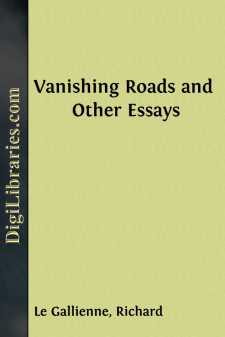

![The Romance of Zion Chapel [3d ed.]](https://digilibraries-com.s3.eu-central-1.amazonaws.com/covers/bb99a7f0-f28e-4430-8da2-9d5a92f4ee4e.jpg)
